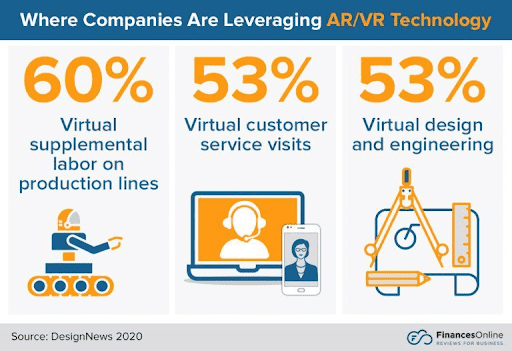Table of Contents
How Are Mobile Applications Transforming Businesses Today

Looking For Experts To Build A Mobile App?
Five Major Programming Languages Used To Develop Mobile Apps Today
Top Features of Swift
- Optimizes performance for a wide variety of use cases
- Built-in error handling eliminates mistakes and makes code more readable
- Clean syntax in Swift makes APIs easier to read and maintain
- Keeps memory usage to a minimum and prevents garbage collection overheads
- Streamlined closures to perform powerful custom transformations
- Swift code is interoperable with your existing Objective-C files in the same project
Top Features of C++
- High level of control over system resources and memory
- Ability to develop applications that can be adapted to multiple platforms
- Mobile apps can be adapted to support multiple industries and use cases
- Supports the development of AI-based software solutions
- Standard Template Library saves development time and effort
- Early error detection during the compiling process
Top Features of Java
- Highly popular for robust and secure client-server applications
- Automatic memory management to prevent memory leaks
- Machine-independent code that runs on the Java Virtual Machine (JVM) regardless of the underlying architecture
- Just-in-time compilation to improve program execution speed
- Standard libraries to access host-specific features such as graphics, threading, and networking
- Widely acknowledged for portability and code reusability
Top Features of HTML5
- Audio and video tags allow developers to add videos quickly, without building a video player
- Scalable, easy to create, and editable vector graphics improves the transferring and loading speed of graphics on the web
- Multiple tags and media elements to promote interactivity and animation
- Loads faster using application cache, web SQL database, and local web storage
- Easy to keep up with changes and new web standards because of simpler syntax
Top Features of PHP
- Supports a wide range of databases which makes it suitable for handling forms
- Cross-platform support, browser and server compatibility, support for multiple protocols (HTTP, POP3, LDAP, IMAP, SNMP, NNTP, and more)
- Well-organized, easy-to-optimize programming language with numerous predefined functions
- Efficient session management that eliminates unwanted memory allocation
- Real-time access monitoring and robust error reporting and handling
- Predefined functions for data encryption keeps the environment safe and secure for users

Top Tools That Can Help You Get Started With Building Your Own Mobile App
1. Apache Cordova
Apache Cordova (formerly PhoneGap) is a mobile application development framework for building hybrid mobile apps using the standard web technologies such as HTML, CSS, and JavaScript. It enables cross-platform development which avoids the need for developing native apps for each mobile platform and OS. Applications developed using Apache Cordova use wrappers to execute the native functions of the targeted platform. Standards-compliant APIs are used to access each device’s data, sensor, and network status. This framework allows mixing native and hybrid code snippets which results in apps that are neither truly native mobile nor purely web-based applications. Cordova also helps develop a plugin interface between native and WebView components.
2. Appcelerator
Appcelerator is a leading open-source, cross-platform development framework that allows enterprises to build native apps for platform such as Android, iOS and Windows using a single codebase. In 2016, Appcelerator was acquired by Axway, a French-American publicly-held company that offers software and services for enterprises to manage their data flows. Appcelerator framework is cloud-based, supporting developers to use it from anywhere. It offers several built-in UI components and an Apache-licensed MVC app framework named "Alloy" to separate the user interface, business logic, and data models of mobile apps. Appcelerator framework drives your mobile app to success with real-time mobile analytics, an open extensible development environment, scalable cloud service, API Builder, and API Runtime.
3. RhoMobile Suite
RhoMobile Suite (formerly Rhodes Framework) is an open source framework that includes a set of development tools for creating cross-platform, data-centric, business and consumer grade native mobile apps. It uses standard web technologies, such as HTML5, JavaScript, CSS3, and Ruby to build native mobile apps. Using RhoMobile, developers can write an app once and run it everywhere, including the most-used operating systems (iOS, Android, and Windows). RhoMobile Suite consists of Rhodes, RhoElements, RhoStudio, RhoConnect, RhoHub and RhoGallery. Tau Technologies Inc., the organization that currently supports and develops RhoMobile states that the framework can reduce the cost and development time of mobile applications up to 3 times.
4. WidgetPad
WidgetPad is one of the best open-source frameworks that provides a perfect development environment to create cross-platform mobile applications for iOS, Android and WebOS mobile operating systems. WidgetPad uses standard web technologies like CSS3, JavaScript, and HTML5 to provide a secure and open development environment. The framework offers developers a multitude of features like source code editing, versioning, collaboration, debugging, project management, and distribution to build powerful apps. WidgetPad reduces the complexity of creating native applications. You can easily add and customize the common widgets such as maps, social media feeds, forms, video players, and much more with a few clicks.
5. Solar2D
Solar2D (formerly Corona SDK), developed by Corona Labs Inc. is a free and open-source, cross-platform SDK, currently maintained by Vlad Shcherban. This software development kit is used by developers to build two-dimensional (2D) mobile applications for Kindle, Android, and iOS as well as connected TV applications for Android TV, Apple TV, and Fire TV, with just one code base. The framework also helps build desktop apps for Linux, macOS, and Windows devices. Solar2D kit offers plugins for all critical business needs, such as in-app advertising, analytics, media, and much more. Solar2D is based on Lua, an open-source scripting language which is lightweight, fast, and powerful. Solar2D Native is an operational mode of the framework that allows you to call any native library or API to extend the functionality of Solar2D.
Not Sure How To Get Started With A Mobile App Development?
Types of Mobile App Development Frameworks
1. Native Apps
2. Web-Native Mobile Apps
3. Hybrid Apps
Leading Mobile Application Development Frameworks That Developers Should Explore
Top Trends in Mobile App Development

Like AR, VR is also transforming mobile app development today. VR can connect with phones, apps, and wearables to enhance the user experience and content perception of fully functional mobile apps. According to Design News, 29% of manufacturers reported an increase in their productivity and efficiency since they implemented AR/VR technology into their organization.

5G, the fifth generation mobile network, is the latest global wireless standard for broadband cellular network that virtually connects machines, devices, and objects to deliver users a uniform user experience loaded with higher data speeds, improved reliability and availability, colossal network capacity, and ultra low latency. 5G will transform the way mobile applications are created and used. Cisco estimates that by 2023, more than 10% of the global mobile devices and connections will be 5G-enabled. 5G will drastically improve the speed and efficiency of mobile apps, allowing developers to add new features without risking the app’s performance. 5G is expected to boost network efficiency and traffic capacity, with an estimated 10x decrease in latency. Source: Business Performance Innovation (BPI) Network Survey, BNI, 2019
Deliver Top-Notch Banking Experiences to Your Customers!
Fingent’s Mobile App Development Case Studies
1. Customized Mobile App for Travelers
- Developed a Native Android app powered by a highly sophisticated analytical engine that provides recommendations to users
- Data from trusted sources and crowd-sourced reports are integrated with smart, data-driven, statistical algorithms
- Improved the organization’s consumer outreach with marketing assistance
- Increased the number of app downloads by driving more traffic onto their website
2. VR-integrated Mobile App for a University
- A state-of-the-art mobile app integrated with virtual reality helps students explore 16 different campuses
- 360-degree VR videos provide enriching campus and classroom experience, leading to increased enrollments
- Teleportation in VR enables students to effectively interact with programs
- Students can connect with the university staff members and enroll for programs through the mobile app itself
How Can Fingent Help in Mobile App Development
FAQs on Mobile App Development Technologies
- >> Feature support and extensibility
- >> Code-sharing and reusability of components
- >> Speed of development
- >> Application performance
- >> Compatibility with third-party plugins and APIs
- >> Development cost
- >> Expertise in the chosen framework













































